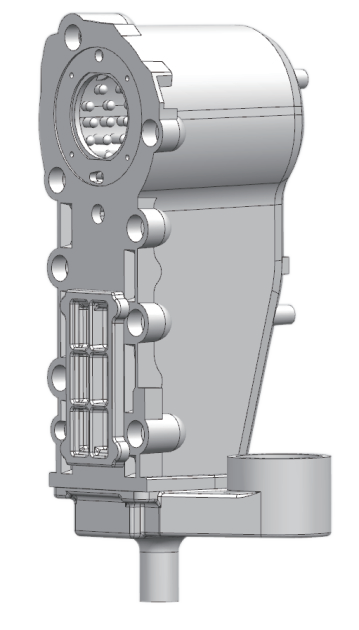டிசம்பர் . 06, 2024 07:08 Back to list
boiler selection guide
Boiler Selection Guide Key Considerations for Optimal Performance
Selecting the right boiler for your facility is a critical decision that can significantly impact operational efficiency, safety, and costs. With a wide range of options available, understanding the various factors involved in the selection process is essential. This guide aims to provide a comprehensive overview of the key considerations to keep in mind when choosing a boiler.
1. Determine the Boiler Type
Boilers are typically categorized into two main types fire-tube and water-tube boilers. Fire-tube boilers are more common in smaller applications, where hot gases pass through tubes that are surrounded by water. They are generally lower in cost and easier to operate. Conversely, water-tube boilers are used in larger, high-pressure applications. They are more efficient and have a quicker response to load changes, making them suitable for industrial settings.
2. Assess Heating Requirements
Before selecting a boiler, it’s crucial to calculate the heating requirements for your facility. This involves understanding the desired output in terms of BTUs (British Thermal Units) or horsepower. Factors influencing your heating needs include the size of the space, insulation quality, heat loss calculations, and the specific processes that require steam or hot water. Consulting with HVAC professionals can provide accurate assessments and ensure you select a boiler with appropriate capacity.
3. Fuel Source
The choice of fuel is a significant determinant in boiler selection. Common fuel sources include natural gas, oil, electricity, coal, and biomass. Each fuel type has its advantages and disadvantages regarding availability, cost, efficiency, and environmental impact. For instance, natural gas boilers are popular due to their efficiency and lower emissions, while oil-fired boilers may be more suitable in areas where natural gas is not readily available. Understanding the pros and cons of each fuel source can guide you toward the best choice for your operation.
4. Energy Efficiency Standards
boiler selection guide

Energy efficiency is a crucial consideration when selecting a boiler. Higher efficiency not only reduces fuel costs over time but also minimizes the environmental impact. Look for boilers that meet or exceed relevant efficiency standards, such as those set by the U.S. Department of Energy (DOE). The efficiency rating, often expressed as a percentage, indicates how much fuel is converted into usable energy. Equipment with higher efficiency ratings may have a higher initial cost but can lead to significant savings in the long run.
5. Size and Space Considerations
The physical dimensions of the boiler and its accompanying equipment play a significant role in the selection process. It's essential to ensure that you have adequate space for installation, maintenance access, and potential future expansions. Consider the layout of your facility, ventilation requirements, and any local codes or regulations regarding boiler installation. Consulting with engineering professionals can help achieve optimal placement and integration into existing infrastructure.
6. Emissions and Environmental Regulations
In today's environmentally conscious climate, understanding emissions and regulatory requirements is imperative. Depending on your location, boilers may need to comply with stringent emissions standards, so it’s essential to select equipment that meets or exceeds local air quality regulations. Options such as low-NOx (Nitrogen Oxides) burners can reduce harmful emissions and provide a more environmentally friendly operation.
7. Maintenance and Support Considerations
Ongoing maintenance and support are critical to ensuring the longevity and efficiency of your boiler system. When selecting a boiler, consider the manufacturer's reputation for reliability and the availability of spare parts and technical support. A boiler with a strong warranty and a manufacturer that provides comprehensive customer service can save time and money on upkeep and repairs.
Conclusion
Selecting the right boiler requires careful consideration of multiple factors including type, fuel source, efficiency, size, emissions, and maintenance. By thoroughly assessing your specific needs and consulting with industry experts, you can make an informed decision that enhances operational performance and sustainability. Investing time and resources in the correct boiler selection will ultimately lead to improved productivity, reduced energy costs, and a positive impact on the environment. With the right information and guidance, you can ensure a successful boiler installation that meets both current and future demands.
-
Durable Centrifugally Cast Iron Water Main Pipe
NewsAug.11,2025
-
Centrifugally Cast Iron Water Main Pipes for Reliability
NewsAug.10,2025
-
High-Quality Centrifugally Cast Iron Water Main Pipes
NewsAug.09,2025
-
Durable Cast Iron Water Main Pipe & Drainage Solutions
NewsAug.08,2025
-
Buy Cast Iron Pipe: Premium Ductile Iron & Drain Solutions
NewsAug.07,2025
-
Durable Cast Iron Water Main Pipe | Buy Ductile Pipe
NewsAug.06,2025


